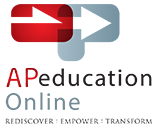Level 4 Certificate in Neuroscience in Early Years
This OFQUAL recognised qualification aims to provide an understanding of brain development in Early Years. It looks at the impact of adverse childhood experiences (ACEs), contemporary theories and implementing neuroscience-informed change.
This qualification is designed for practitioners who wish to improve their knowledge of early brain development. It will support learners within the Early Years sector to develop knowledge and skills to support advancement within the sector. Learners may also progress to further study.
Aims of the course
These are to:
- Focus on the study of neuroscience in Early Years
- Understand neurons, synaptogenesis and how the social brain develops
- Offer breadth and depth of study, incorporating a key core of knowledge
- Understand self-regulation and the factors that can affect its development.
- Understand types of stress and adverse childhood experiences.
- Develop new practical skills for working with children from birth to seven years
- Distinguish between behaviourist and relational approaches to behaviour management.
- Provide knowledge for those seeking employment in the Early Years sector.
- Develop employability skills
Learners are required to be in employment/work placement to fulfil the Learning.
Structure
The units for this programme have been selected to offer learners the best opportunities for progression both academically and professionally. In order to achieve the Level 4 Certificate in Neuroscience in Early Years, learners need to successfully complete all 4 mandatory units.
The units are:
- Understand neuroscience as part of effective early years practice
- Understand adverse childhood experiences (ACEs) and their impact on children’s stress response system
- Contemporary thinking and research from the neurosciences about child development from birth to seven years
- Implementing neuroscience-informed change through practitioner-led enquiry
How the course is delivered
This Level 4 Certificate in Neuroscience in Early Years is delivered via a Virtual Learning Environment (VLE) which provides access to case studies, learning materials and activities, presentations and web links. Online tutor support and guidance is provided throughout the course, where learners can interact with the tutors, get feedback on their progress and submit their work electronically. This helps you to build the relevant skills progressively, as you receive feedback and support from your tutor during this time. As the course is delivered online, this enables learners to study any time, any place through immediate access to VLE.
Assessment
All units will be internally assessed using a range of methods. Knowledge-based outcomes can be assessed using non-mandatory assessment tasks. Skills-based outcomes must be achieved with reference to a real work environment and must include direct observation within the workplace.
Opportunities for progression
Learners could progress to the following qualifications:
- Level 3 Diploma in Childcare and Education (Early Years Educator)
- Level 3 Diploma for the Early Years Workforce (Early Years Educator)
- Technical Level 3 Diploma in Early Years Education and Care (Early Years Educator)
- Level 4 Certificate for the Early Years Advanced Practitioner
Career opportunities
This qualification doesn’t lead to a specific job role but when undertaken in conjunction with our Early Years Educator Level 3/4 qualifications, it provides learners with an overall package that allows for further progression in the Early Years sector
Entry requirements
- Learners must be at least 18 years old and hold a full Level 3 early years / childcare qualification
- An appropriate level of skill in the English language.



